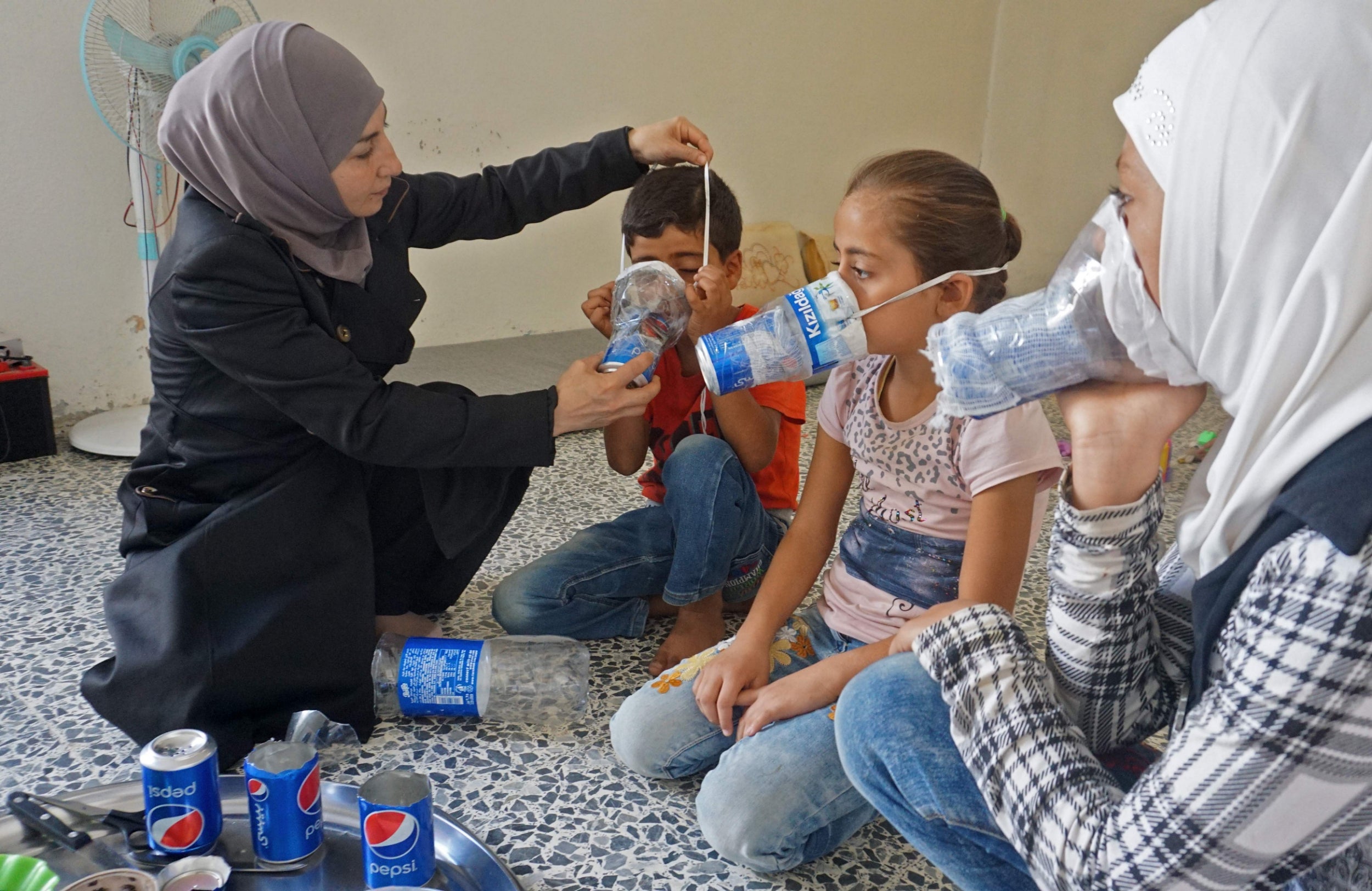Syrian government has again committed war crime of chemical weapon use, says UN - in warning against Idlib 'massacre'
‘All parties to the conflict and those states who support them [must] do everything in their power to prevent a massacre in Idlib,’ says new report

Forces loyal to president Bashar al-Assad fired banned chemical weapons at Syrian rebel enclaves at least three times this year, bringing the total number of such incidents to more than 30 confirmed by United Nations investigators since the start of the seven-year conflict, according to a new report.
In one incident, government helicopters fired two barrel bombs on a district of Saraqeb in February, a town in the rebel-controlled province of Idlib, which is now in the midst of a fresh government offensive. The munitions gave off a strange smell, said the report of the independent commission convened by the the UN’s Human Rights Council to probe human rights violations and deprivations suffered in the Syrian war.
“Victims described symptoms consistent with the use of chlorine, including shortness of breath, a burning throat, coughing, dilated pupils and chest pain, and also recalled a smell similar to household detergents,” said the report.
The findings in the 24-page report cover January to July of 2018. The conclusions are based on 402 interviews, as well as satellite imagery, photographs, videos, and medical records, along with consultations with aid organisations and government officials.
The findings of chemical weapons use come as Syrian government forces, allied Iranian-backed militias, and Russian pilots and advisers prepare an all-out offensive against Syria’s last major rebel enclave in the Idlib province.
“The Commission of Inquiry demands that all parties to the conflict and those states who support them do everything in their power to prevent a massacre in Idlib,” the war crimes investigators said in a statement read out by panel chairman Paulo Pinheiro to a news conference.

The report comes at a diplomatically sensitive time. The US, France, and other countries have warned Syria and its backers not to use chemical weapons in the Idlib offensive. The Kremlin has repeatedly warned that the Syrian rebels are preparing to attack themselves with chemical weapons in order to trigger airstrikes by the west. Citing unnamed residents, Russia’s ministry of defence claimed that film crews from “Middle East” television channels had arrived to film “staged” scenes of people suffering from chemical weapons attacks.
But the UN report says at least two of incidents it documented in Syria “follow a pattern previously documented by the commission concerning the use of chemical weapons by government forces and consistently observed since April 2014.”
On 22 January and 1 February chlorine loaded onto rockets struck the eastern Ghouta district on the eastern outskirts of Damascus. UN investigators said the missiles used in those attacks “have been used only by government forces” or allied militias.
“Specifically, the munitions documented were built around industrially produced Iranian artillery rockets known to have been supplied to forces commanded by the government of the Syrian Arab Republic,” said the report.
Despite claims by some western officials that the war in Syria in winding down, the report described a particularly ferocious stretch of fighting this year in which one million people were displaced. The report says that 5.5 million Syrians have fled the country, and 6.5 million displaced inside the country.
“It is completely inexcusable that no party to this conflict adhered to their obligations towards civilians displaced by their military operations,” Mr Pinheiro, the Brazilian jurist who chairs the investigative commission, said.
The report also directed criticism at Turkey, which launched military operations against the Kurdish-controlled Afrin enclave, for inflicting civilian casualties, displacing thousands, and unleashing unruly allied militias on people in the country’s northwest Afrin district. The commission accused anti-Assad rebels, including some that are extremists, of abuses within their areas of control and indiscriminate attacks on civilians in loyalist enclaves.
But the report reserved the bulk of its criticism and attention on the regime, which it bluntly accused of violations of international law.
“The commission finds that pro-government forces committed the war crimes of deliberately attacking protected objects, intentionally attacking medical personnel and using prohibited weapons,” the report said. “On four occasions, pro-government forces did not direct attacks at a specific military objective, which amounted to the war crime of launching indiscriminate attacks in civilian areas.”
Join our commenting forum
Join thought-provoking conversations, follow other Independent readers and see their replies
Comments
Bookmark popover
Removed from bookmarks